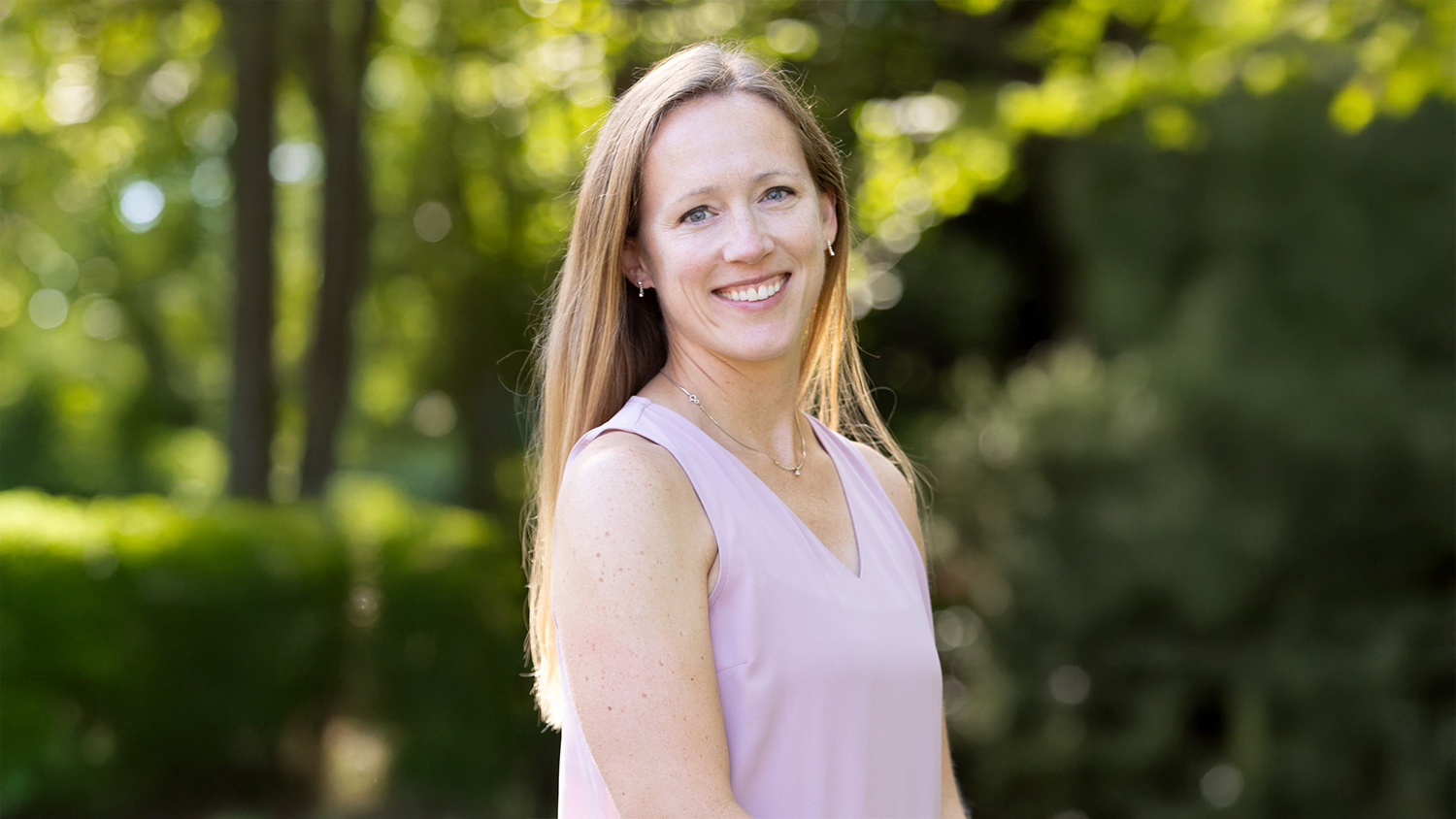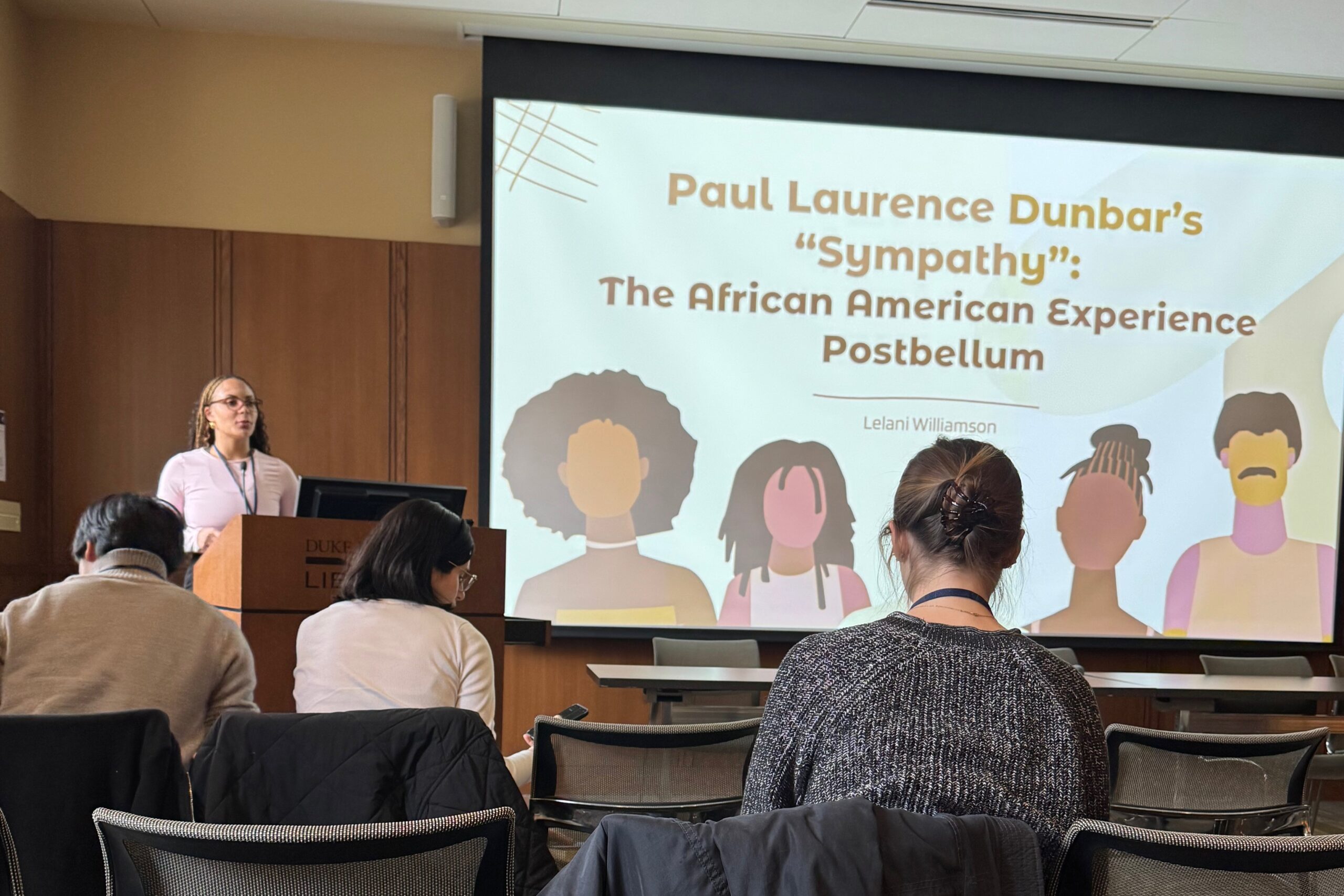Spotlight on our Students: From the Pack to the Track
Chris Suggs (left) on the CARS Tour team.
“I think being in the USP has helped me to look at the experience as a whole and appreciate the significance of what I’m a part of, and the larger role it plays for the communities that the series travels to.”
In this edition of Spotlight on Our Students, we chased down Chris Suggs to talk to him about all things racing related. Chris is spending the summer working as a crew member and engineer for a stock car racing team that competes on the CARS Tour. This race series travels to several different tracks in the North Carolina, South Carolina, Virginia, and Tennessee area, and features many of the best up-and-coming drivers in stock car racing. In fact, many NASCAR teams use it as a proving ground to search for and develop new talent. Chris is a rising fourth-year University Scholar from Knightdale, NC majoring in Mechanical Engineering. Read on to learn more about his time helping his team succeed on the track.
USP: Chris, you have one of the most unique summer work experiences I’ve heard about so far this summer. Tell us about how you got involved in stock car racing.

CS: I have been around racing in some form or another for as long as I can remember, so it has always been something that I’ve enjoyed. When I was growing up, my dad raced legends cars locally at tracks like Wake County Speedway and Southern National Motorsports Park, so I was going to the race track when I was very young. Even after he stopped racing, we still knew lots of people in the area that raced, and so I continued to go to the local short track races quite a bit, and occasionally a NASCAR Cup Series race when it worked out that I could go. Over the years as I learned more about what it takes to compete in motorsports, it has remained an interest of mine, and when I got the chance to get involved with the CARS Tour it seemed like a great opportunity.
USP: So being around the racetrack is a family tradition for you – that’s awesome! What do you hope to learn while working with the racing team this summer?
CS: Some of the things I would like to take away from this experience include learning about what goes into operating a full time race team on and off the track, getting more experience with some of the hands-on aspects of actually dealing with the cars, and also learning about ways that I can apply what I’ve learned in school to the motorsports and automotive industries. In my engineering classes, I get to learn lots of math and theory related to mechanical systems, so this gives me an opportunity to see how some of it can be put into practice in a specific area that interests me.
USP: So you are literally putting your learning into action, applying what you learn in the classroom to the racetrack. I bet that is a thrill! How do you think you might apply what you learn this summer to future career opportunities?

CS: Being involved with this late model stock car team serves as a great introduction to learning about different systems within the vehicle and how to analyze their performance. That aspect of things will be very helpful whether I find myself in racing or in the consumer market working for an automotive manufacturer. Another important goal for me this summer is networking. There are several teams that run the CARS Tour on either a full time or part time basis that have connections to higher levels of the sport, such as the NASCAR Cup Series, so the more I can get my name out to people in the industry, the better my chances of possibly working my way up the ladder.
USP: Can you tell us what your main responsibilities on the track are?
CS: My main responsibilities center around managing data and keeping the notebook up to date as the weekend progresses. There’s a lot of information moving around even during a single practice session with things like weather conditions, tire data, what changes the crew chief is making and why, driver notes, and lap times from all the cars to compare with trends from your own car. All of this is important for the crew chief to be able to look back on and make informed decisions between practice, qualifying, and the race. Aside from that, I help out where ever I’m needed at the moment, whether it be turning wrenches, putting on decals, carting tires and fuel cans back and forth, or making sure the guy in the next pit stall over isn’t taking too much of an interest in what spring or shock change you’re making.
USP: Hearing you describe it like that makes it seem to come to life. We should ask you to do a behind-the-scenes video of a day at the races. How would you say your time in the University Scholars Program has helped prepare you for this experience?
CS: Doing a job like this, it’s very easy to get caught up in the details of what you’re doing because it changes so fast, and you can sort of forget about the actual event that’s happening. I think being in the USP has helped me to look at the experience as a whole and appreciate the significance of what I’m a part of, and the larger role it plays for the communities that the series travels to. It’s not something that I used to think about because for me the whole racing thing is somewhat normal, but for some of the people that come to these races, it may be the first time they’ve ever seen anything like this, and it’s a huge part of American culture that not everyone gets to experience.
USP: That’s so true! You’re making sure that this event goes smoothly, but it’s also very important to look up and realize you’re bringing joy to lots of people in the stands. In closing, can you share with us the best advice you’ve ever received?
CS: I’ve been fortunate to be surrounded by some great people over the years, and I’ve received lots of good advice, so it’s hard to say what the best advice I’ve ever received is. One piece of advice I’ve picked up since being at NC State, though, says something along the lines of “if there’s something that you want to do in life, always give people the opportunity to say no, because you never know when they might decide to tell you yes.”
USP: In sum, it never hurts to ask. Such good advice. Well, best of luck this summer. We look forward to all the highlights when you get back to campus this fall.
- Categories:


